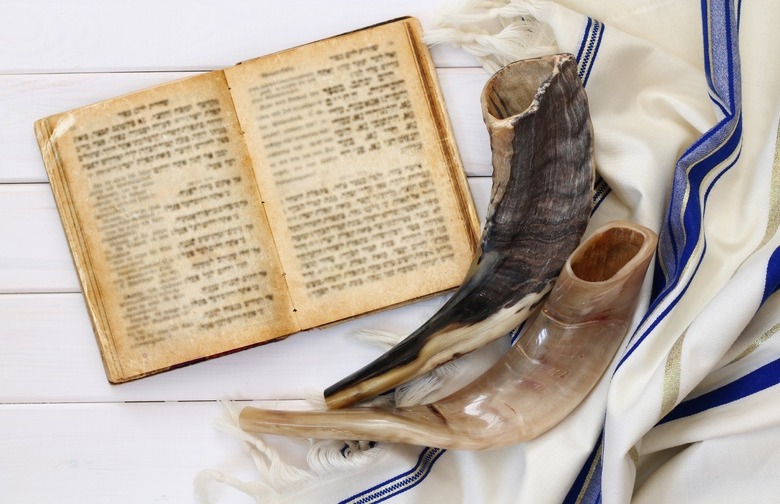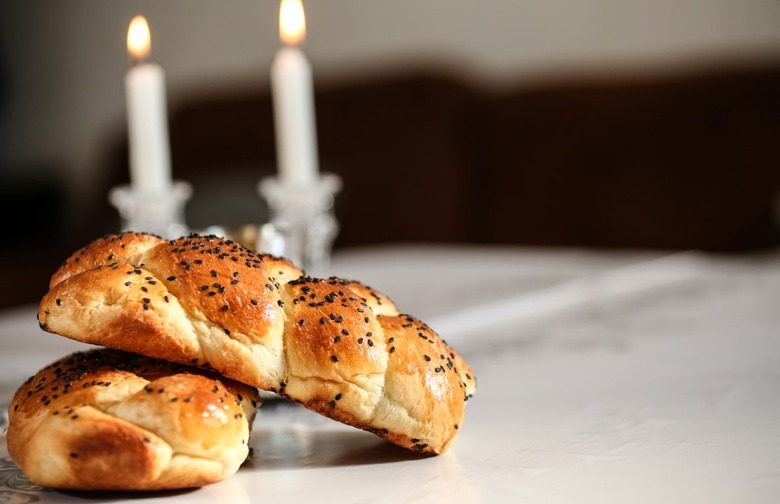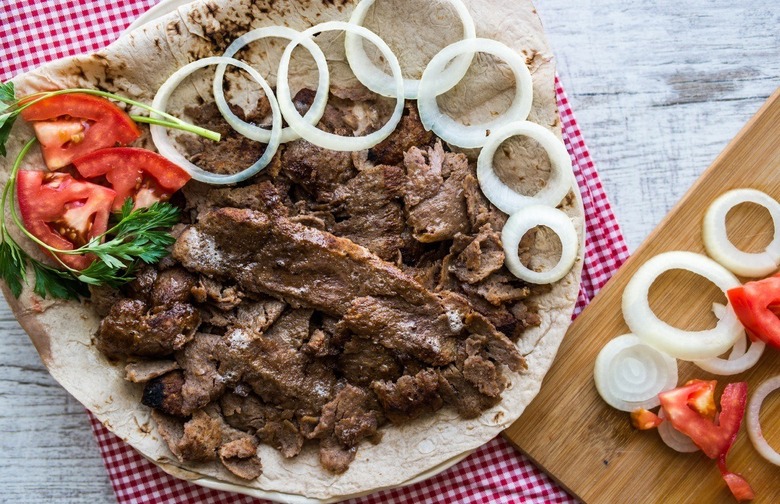Why Muslims Fast For Ramadan And 6 More Food-Based Religious Traditions Slideshow
Just about every major religion on earth has laws that in one form or another dictate what its devotees can and can't eat. Some are stricter than others; some only go into effect during specific times of year; some involve ritual fasting. But what are these laws, exactly? And why do they exist?
Islam: Fasting on Ramadan
In the Quran, Allah states, "O you who believe, fasting has been prescribed for you as it has been prescribed to those before you in order that you may attain taqwa." Taqwa, according to Beliefnet, "implies guarding one's self from evil and the imbibing of all elements of righteousness, thus reflecting the essence of piety." Fasting during the daylight hours of Ramadan, the month in which the Quran was revealed, is one of the Five Pillars of Islam, along with faith, prayer, charity, and making a pilgrimage to Mecca.
Judaism: Fasting on Yom Kippur
Jews fast on the holiest day of the year, Yom Kippur, because it is "a day of intense self-searching and earnest communication with the Almighty," according to myjewishlearning.com. Yom Kippur is the "Day of Atonement," and we can't "atone for our excesses toward others [until] we can curb appetites which depend on no one but ourselves."
Catholicism: Fasting During Lent
Lent is the 40-day period of time before Easter when Catholics "pray, fast, contemplate, and engage in acts of spiritual self-discipline," according to catholic.com. "Catholics do these things because Easter, which celebrates the Resurrection of Christ, is the greatest holy day of the Christian year (even above Christmas) and Catholics have recognized that it is appropriate to prepare for such a holy day by engaging in such disciplines." Meat is prohibited on Ash Wednesday, Good Friday, and Fridays during Lent; the reason behind abstaining from eating meat on Fridays is "to remind the faithful that Jesus died on a Friday," according to gotquestions.org. "Jesus gave up His body (His flesh), and Catholics, in an effort to attain greater communion with Christ, refrain from consuming flesh." According to the United States Conference of Catholic Bishops, fish are permitted on Fridays because they are considered a different category of animal, while eggs, butter, and milk are not considered meat products and as such are not prohibited."
Buddhism: Fasting
Buddhist monks can fast for up to 18 days, during which they'll drink only a small amount of water daily, but lay Buddhists also fast in a less extreme manner. "Laity who receive and observe the vows known as the Lay Bodhisattva Precepts stop eating at noon on six days of each month," Rev. Heng Sure, Ph.D., the Director of the Berkeley Buddhist Monastery, writes on urbandharma.org. "The purpose of their limiting food intake is manifold: out of compassion for those suffering from starvation, they 'give by reducing their share.' Further, they respect the Buddha's practice of moderation and eat less on those days." Alcohol is forbidden in Buddhism, and for some sects, so are "the five pungent spices": onions, garlic, scallions, leeks, and chives, which are said to lead to anger and passion.
Hinduism: Vegetarianism
Even though meat eating isn't strictly forbidden in Hindu texts, some Hindus adhere to a vegetarian diet for several reasons: compassion for animals, karmic consequences, spirituality, health, and ecological reasons. Each of these is explained in detail on ivu.org.
Judaism: Adhering to Kosher Law
Jewish law dealing with what's kosher is called Kashrut, and these laws are laid out in the Torah without any specific reasons given. The laws are very extensive, but boil down to the following: certain animals (including pigs and shellfish) are forbidden, acceptable animals must be slaughtered in a certain way, and meat (and kitchenware that comes into contact with meat) shouldn't be mixed with dairy, although the restriction does not apply to fish or eggs. Kosher laws become a lot more challenging during Passover, when (among other things) leavened bread is forbidden because the Jews didn't have time to let their bread rise when fleeing oppression in Egypt; hence the matzo.
Islam: Halal
Like kosher law, halal law also guides how animals that are destined to be eaten are raised, slaughtered, and prepared for consumption. Animals need to be fed vegetarian diets and should be healthy and treated well, they can't be treated with antibiotics or growth hormones, and they must be slaughtered by hand, not machine. Halal law also forbids the consumption of pork or alcohol.







